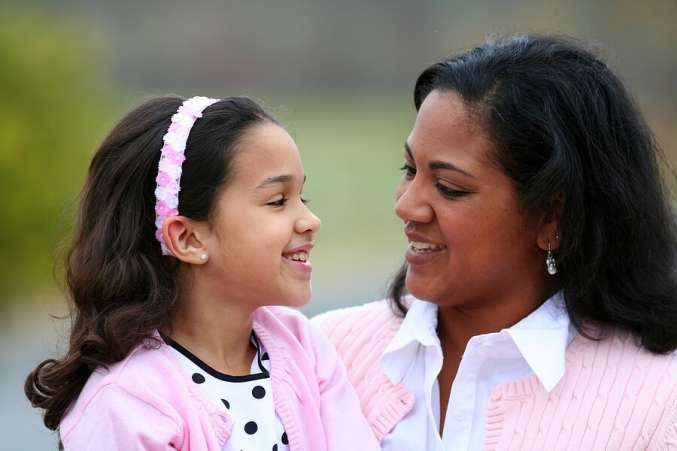Bullying is very common amongst school going children and the point to worry is that the extent and number of such cases is increasing rapidly in every society.
Bullying has become such a major issue in our society today that many schools have been forced to maintain a special cell to stop this type of unfriendly behavior amongst kids.
If your child has been a victim of bullying at school, it is not anything uncommon. However, once you get to know about the problem it is important that you take the right steps to help your child.
The problem is, often parents take bullying of their child at school by some other boy or girl, personally and they tend to act from their anger. The ways of helping your child dealing with a bully at school should be well planned and thought off.
You should not react from your protective instinct for your child. This article is aimed towards providing you with details about how you can actually help your kid with handling bullying at school.
We will also take a deeper look into the psychology of the bullies, so that you can deal with the problem more efficiently.
How to identify child bullying?
Intentionally tormenting someone less powerful through verbal, physical or psychological means can be identified as bullying.
Bullying can be of different types, it might include, hitting, shoving, threatening, name-calling, mocking and even extortion of money or things from your child against his will.
Spreading rumors about your child is also another form of bullying that can be seriously harmful for the psychological health of your child.
Nowadays, bullying in social media has become very common even within the school going children and this can take a really serious toll if goes unnoticed by anyone senior.
Taunting, name calling are often usual amongst friends but till the time it ends happily with both the friends there is actually nothing to be worried about.
There is a clear distinction between these actions amongst friends and bullying, as in case of bullying the weaker party is always left vulnerable and hurt.
So, if you find there is sudden changes in the behavior of your child or that he is trying his best to avoid school as much as possible, it is time that you should talk with him and try to understand the problem.
Signs to tell that your child is being bullied at school
- Sudden change in usual behavior. If your child has been a fan of ice creams and you suddenly find that he is avoiding it as much as possible, there is high chance that he is being bullied at school where the bullies must have been calling him names due to being fat.
- If you find that your child is suddenly losing friends at school and is becoming alone there is a good chance that he is being bullied at school.
- Losing self-confidence is another sign of being bullied. If you observe that your child has suddenly become negative about himself and has started to doubt his own abilities, there is a good chance that somehow bullying is involved in this sudden changes.
- Children who are being bullied at school often tend to do anything to avoid school. If you find that your child has suddenly started to dislike his school a lot and is looking for ways to drop classes at any cost, it might be a reason of being bullied at school.
- If your child gets upset or becomes off after receiving a phone call, massage or mail from one of his friends, you should take it seriously as it might be a sign of your kid being a victim of bullying.
- Being isolated and upset whenever he is alone is another sign that you might observe in your child if he is being bullied at school.
Why kids bully?
In order to teach your child how to handle bullying at school, it is important that you first understand the psychology of the bully. In many cases, kids bully because they look for a victim for exploiting and they always pick the physically or emotionally weaker opponent to throw their torment.
It has been observed that often the kids who bully others are being severely tormented at home by parents or a close family member. For them misbehaving with other kids is usual as that is what he has learnt at home all his life. Often these kids find a victim to vent their frustration and to feel more powerful and in-charge.
How to help your kid to deal with bullying at school?
If your child has confided in you about being bullied at school or if you have realized that there is something wrong with him at school, it is important that you pay full attention to it instead of just brushing it off naming it as a matter of kids.
Bullying can get much serious than you can even imagine and can propel a child to steal, harm someone else or even to take his life. Here is how you can help your kid to handle bullying at school,
Listen to what your kid has to say
To become a support to your child is the first step to help him deal with bullying. Once he knows that you are there to provide him all the help he might need to cope with the situation he will be able to deal with the problem more confidently.
One of the best ways to show your support to your child is to listen to him. Give him un-diverted attention to know in detail about exactly what is going on with him at the school.
Being a good listener to your child will not only strengthen the bond between you two but will also help your child to unfold fully to you, enabling you to understand the severity of the problem .
Do not gossip about your child being bullied
If your child confides in you about being bullied in school, it is important that you keep that a secret. Kids often feel ashamed to let others know the fact that he is being a victim of bullying.
If you gossip about the problem, your child is sure to feel bad which will only make him coil away from you or to lie to you about his problems.
So, even if you need to discuss the problem with someone, do it personally, without making it a big family issue that everyone knows of.
Inform your kid about the psychology of the bullies
You might think that your child is too small to understand why kids bully, but in reality if you can actually describe them the psychological reasons that work in bullies, it will be much easier for your child to handle the situation.
Once your child knows that the bullies actually behave that way only in order to hide their own complexities and vulnerabilities, your child will be able to take bullying much lightly instead of taking the behaviors and words to the heart.
Help your kid become self-confident
Often bullies in school opt for shaming the child by calling names and highlighting his vulnerabilities. To help your child deal with bullies, it is important that you help your kid to become self-confident.
You should encourage him in things he is good at and make him realize that he has the best qualities to be a good person. Once your child is confident about himself, it is most expected that he will be less worried about bullies.
Do not retaliate against the bully or his family
Often, parents tend to take things in their hands as soon as they come to know about their child being bullied at school, but that is not really the right step.
Retaliating back to the bully or to his family might or might not help your child and it is sure to make a wrong example to your kid. Rather teach your child that the best way to deal such situations is to stay calm and to do the right things.
If you think that the things are going too far, you should talk with a teacher or the principal of the school, but threatening the bully or his family is certainly not the right way to go.
Teach your child how to react to bullies
Bullies feed on the fear and weakness of their victim. Teaching your child how to react to a bully can be most helpful to deal with the problem and to make the bully feel powerless.
Teach your child to not to cry, look tensed or scared by the bully, because these are the behaviors of your child which make the bully feel powerful.
Controlling anger or feelings when being bullied can be really difficult for a child, but if he can master that, it will be much easier for him to deal the situation as the bully will quickly lose interest in him.
Take support
If you think that the thing is stretching too far and your child is really scared and unable to handle the problem properly all by himself, the best way will be to talk with a teacher or administrator of the school.
As already mentioned, in many schools a council for dealing with such problems is maintained and you can directly talk with the person in charge to take care of the matter.
Often intervention by teachers helps to solve the problem much amicably.





